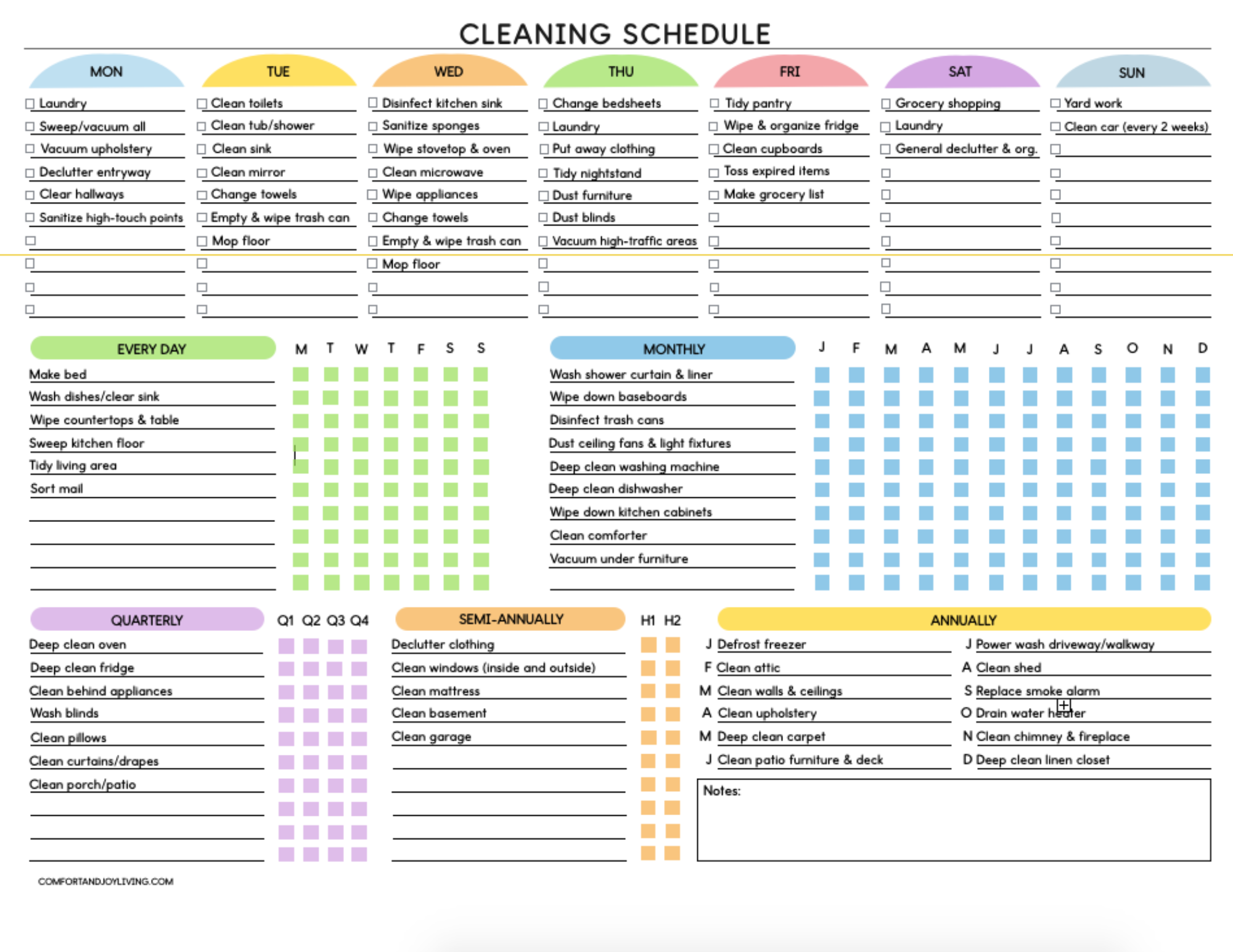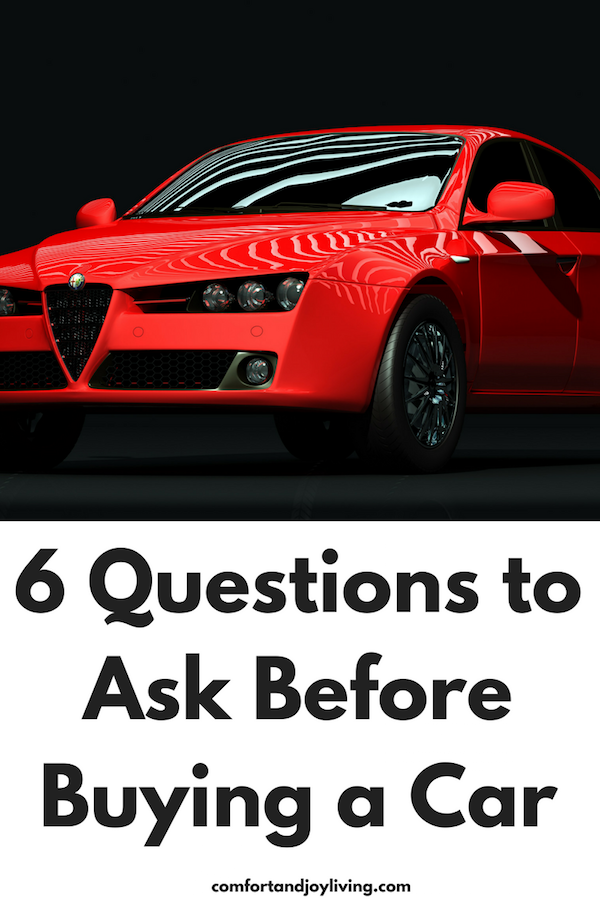Weekend & Monthly Events for Kids and Families, plus Summer Camp Guides:
Atlanta Boston Chicago Houston Los Angeles
New York City Philadelphia San Francisco Washington D.C.
RECIPES DIY PARENTING KIDS CRAFTS HIRING NOW (JOB BOARD)
|
Editable Cleaning Schedule - $3.30 |
6 Questions to Ask Before Buying a Car
Second to our homes, cars are one of the most expensive items we can buy, not to mention the costly maintenance and repairs that they require. Even if you are only just starting to think of buying your next car, these six questions will help you navigate the waters of high interest rates, unethical dealerships, and add-on features, as well as safety and monetary concerns.
1. What can you afford?
While your budget may be small, remember that an older, less expensive car may require more maintenance in the long run. Set up a savings account as soon as possible for car emergencies so you’ll always be prepared to handle them.
Affordability also depends on how much you plan to drive the car. If you commute only 10-15 minutes a day, a junker may be more reasonable, but if you live further from town, you’ll need a car that is much more reliable and safe.
And remember to to check insurance quotes. Extra safety features will make cars a bit pricier, but will give you lower rates.
2. How will you pay for it?
Will you need to get a loan or will you pay everything upfront? Paying cash for your car is the ideal scenario, so if you’re not presently in the market for one, I recommend starting a savings account to pay for one.
If you feel that you need to take out a loan, first look at your budget to see what type of monthly payment you can afford, and call local banks to compare interest rates. They can be quite different than what the dealer offers you, you you should definitely look around for the best price before committing to a new loan.
3. What kind of car should you buy?
With the vast information available online, you can easily find reviews and recommendations for every type of car. KellyBlueBook.com is a great resource and Consumer Reports and Shop Smart Magazine also feature a car section in each issue that is quite readable by those of us who don’t really understand the technical side of cars, like me.Some things to look into are:
Safety and reliability
Drivability
Gas mileage
Space
Resale value
Invoice price vs. retail price
You should look up the invoice price of the car before you go shopping. This is what the dealer actually paid for the car before they marked it up to the consumer, and is a good starting point for negotiations. You can look up typical invoice prices online at edmunds.com.
4. Will you buy new or used?
There seems to be a stigma when buying completely new car, buy I believe that this only applies to certain types of cars. You really have to take the quality factor into consideration before deciding which one you will buy.
While used cars might be cheaper, you really don’t know the entire history of the vehicle, so sometimes it’s safer to buy new. But like I said, it really depends on the type of car. Make sure that it’s a very reliable and quality vehicle that is known for retaining its value, otherwise, you may not save much money by splurging on a new car. Instead, it may be a safer bet to purchase and almost-new, 2-3 year-old vehicle, which still gives you the most of the reliability of a newer vehicle without the instant depreciation of a new car.
5. Do you have a vehicle to trade in?
Research trade-in values on KellyBlueBook.com for the car you have, and go to the dealership armed with your findings. Just don’t let the salesman know about it until you’ve settled on a price for your new car.
The reason for this is that they know that if you have a trade-in, they will try to convince you to pay more for the car you were planning to buy because you’re essentially giving yourself a “discount.” However, you should negotiate for the cars separately to ensure you’re getting the best price.
6. Will you pay for any extra features?
I just hate it when after hours or even days of research and deciding on a price point, I go to the dealership and they give me a list of add-on options for the car. These can range from keyless entry, rust-proofing, fabric protectant, a wax job, and extended warranties, and can cost an extra $200 to well over $1000!
If you’re buying a completely new car, they may already come with most of these features, but if you buy an oder car and you travel icy northern roads or live in a salty, coastal area, you may want to consider adding on one or two. However, don’t assume that the dealer is offering the best price for the service. Call some reputable repair shops and find out how much these services cost elsewhere. You can save a lot of money by knowing exactly what you need and how much it should cost before going to the dealership.
Asking yourself these 6 questions will help you buy smarter during the search for your next car, but remember, you can always walk away if you don’t feel entirely comfortable about the deal. You may need to visit another lot or do more research.
You should be confident that your next car is exactly the right one for you and planning ahead will put you in a better position to buy one when the time comes. Use this post as a mental checklist to complete before you shop for your next car.
LEAVE A REPLY
Your email address will not be published.

